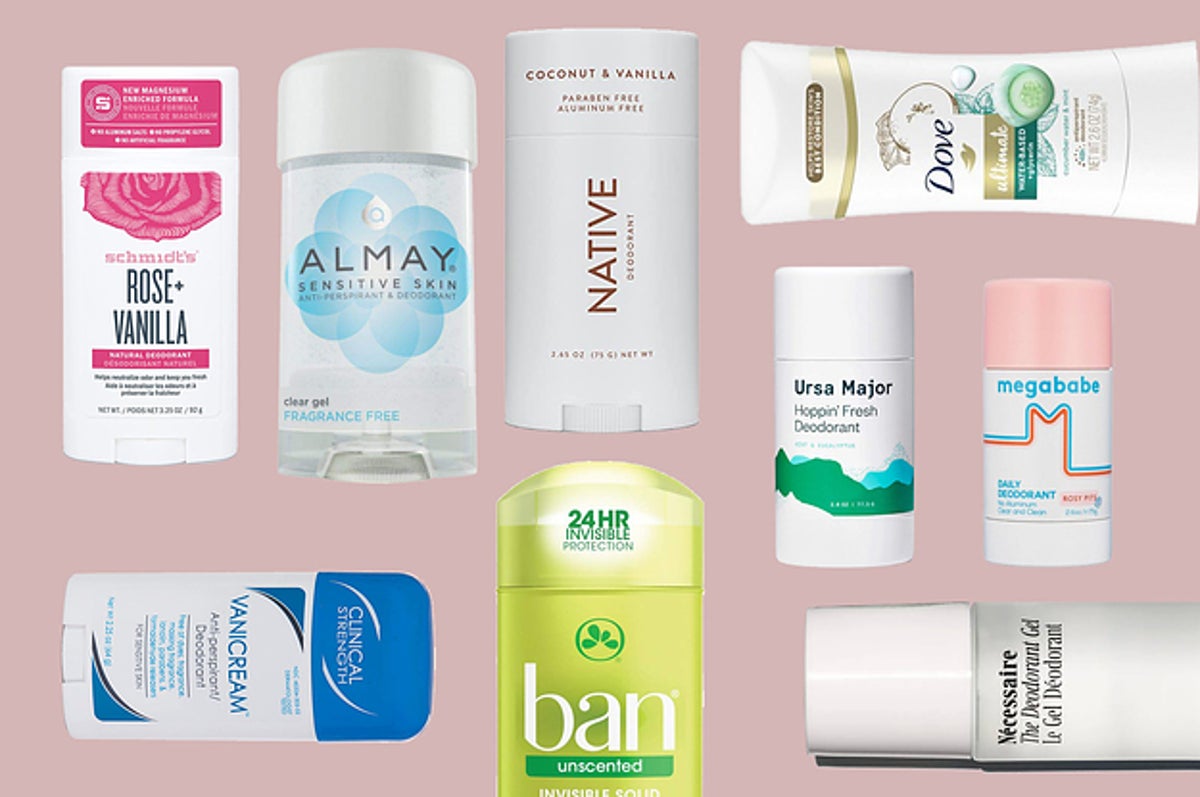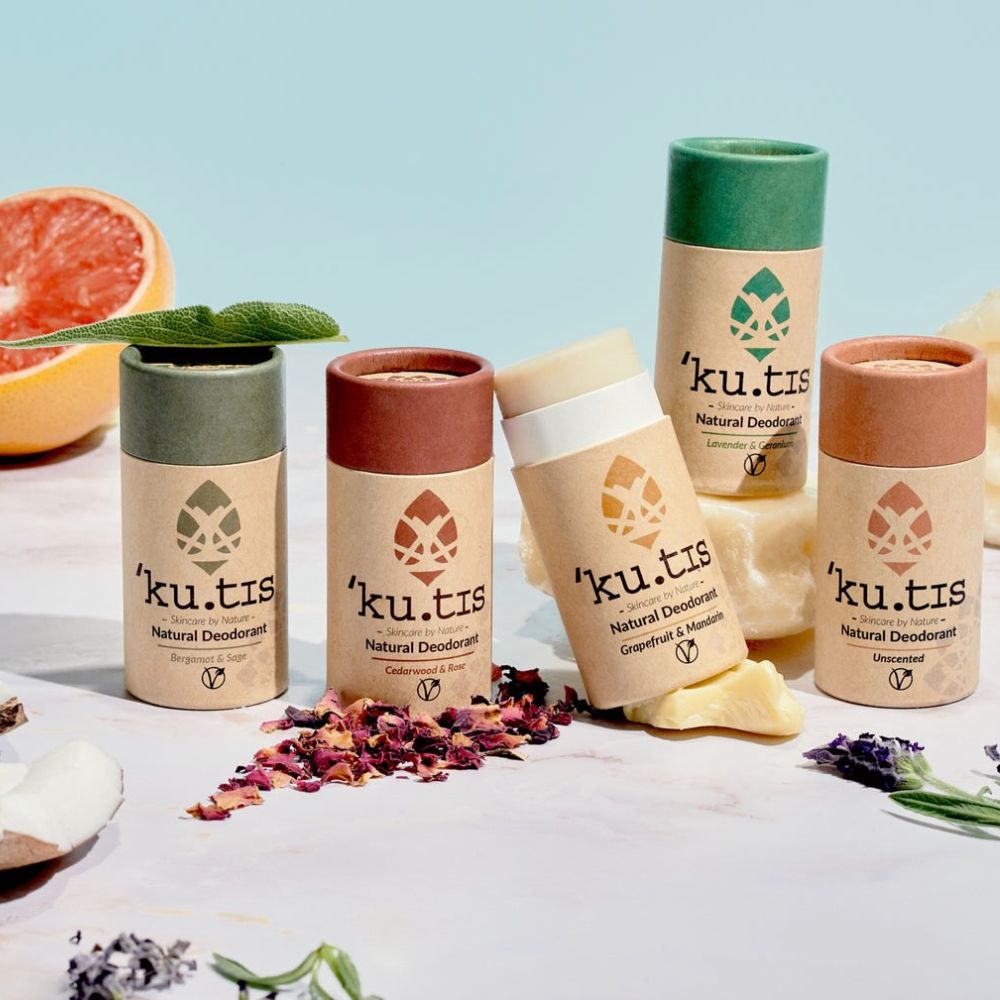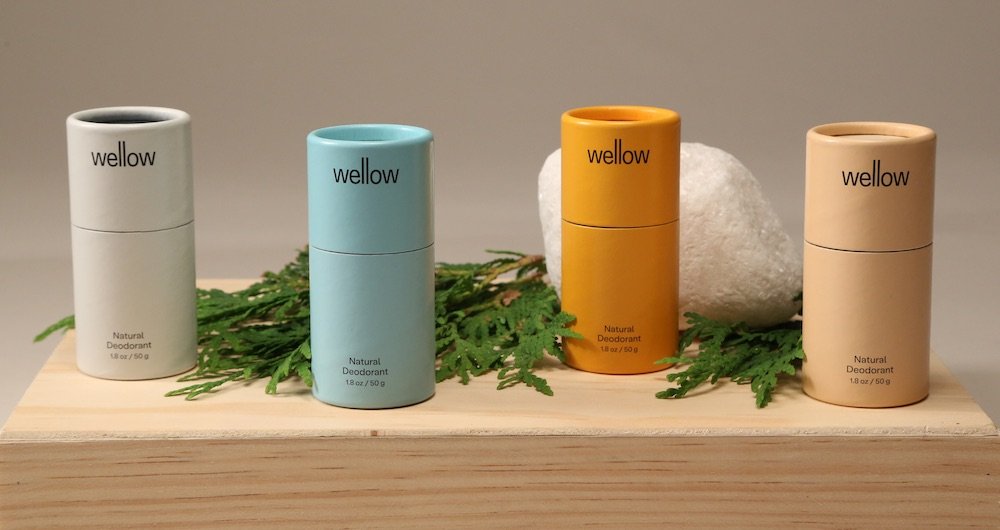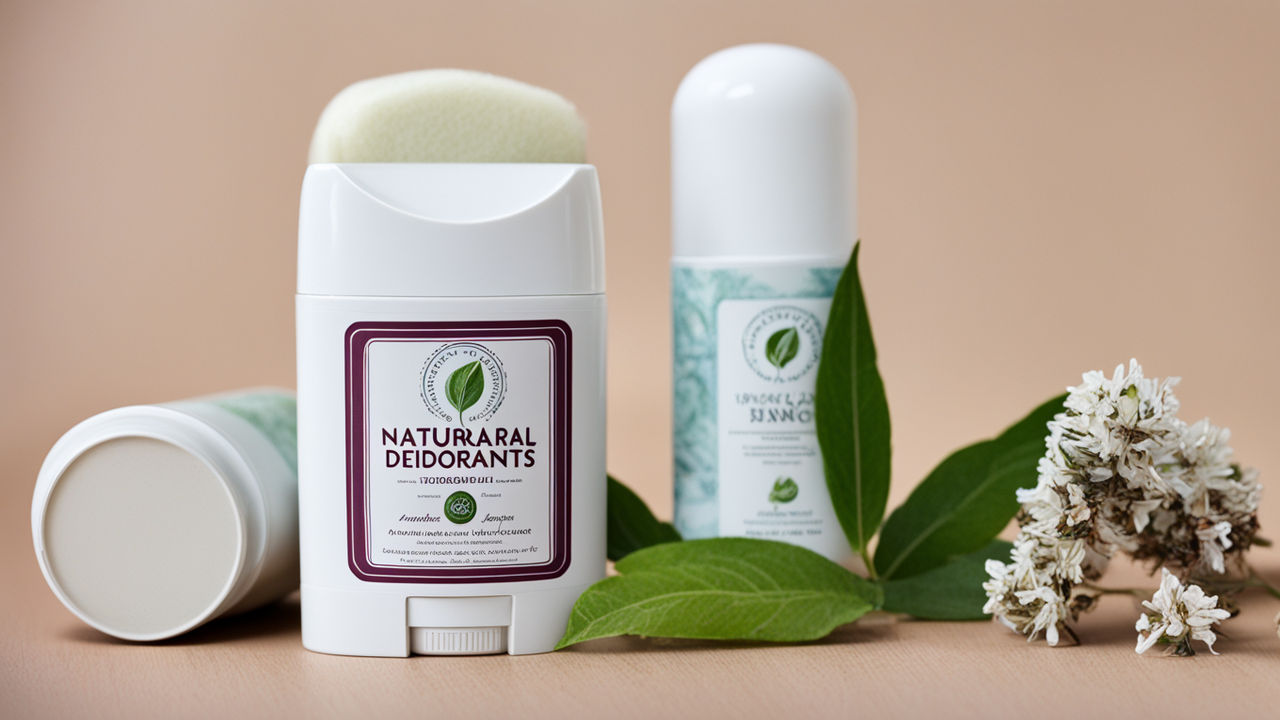The Rise of Natural Deodorants

Natural deodorants have taken the personal care industry by storm, with sales skyrocketing by over 50% in the past five years. This surge in popularity is not just a passing trend; it’s a significant shift driven by consumers’ growing awareness of the ingredients they apply to their bodies daily.
For years, traditional deodorants and antiperspirants dominated the market, promising to keep us fresh and sweat-free. However, recent studies and health-conscious movements have sparked a conversation about the potential risks associated with the chemicals found in conventional products. Ingredients like aluminum, parabens, and synthetic fragrances have come under scrutiny for their possible links to health issues. As a result, more people are turning to natural deodorants as a safer, more environmentally friendly alternative.
This article delves into the rising trend of natural deodorants, exploring the reasons behind their growing popularity and the numerous benefits they offer. From the health-conscious consumer looking to reduce their chemical exposure to the environmentally aware individual seeking sustainable options, natural deodorants are becoming a staple in daily hygiene routines. Join us as we uncover the fresh factor driving this deodorant revolution.
The Natural Deodorant Revolution
Background: A Brief History of Deodorants
Deodorants have been a part of human hygiene practices for centuries. The ancient Egyptians were known to use perfumed oils and spices to mask body odor. Fast forward to the late 19th century, the first commercial deodorant, Mum, was introduced, followed by the invention of the antiperspirant in the early 20th century. These products quickly gained popularity for their ability to combat sweat and odor effectively. However, as our understanding of health and wellness evolved, so did our scrutiny of the ingredients used in these conventional deodorants.
In recent years, the focus has shifted towards natural alternatives. Concerns over potential health risks associated with chemicals like aluminum and parabens have prompted consumers to seek safer options. This growing awareness has paved the way for the natural deodorant revolution, bringing with it a wave of products free from synthetic additives.
Market Growth: Statistics and Trends
The market for natural deodorants has seen remarkable growth. According to a report by Grand View Research, the global natural deodorant market was valued at USD 157.3 million in 2019 and is expected to grow at a compound annual growth rate (CAGR) of 13.3% from 2020 to 2027. This surge is fueled by an increasing number of health-conscious consumers who prioritize clean and green beauty products.
Natural deodorant brands have capitalized on this trend by offering a wide range of products that cater to different needs and preferences. From roll-ons to sticks and creams, the variety and availability of natural deodorants have expanded significantly, making it easier for consumers to make the switch.
Consumer Preferences: Why Natural Over Traditional?
Several factors drive the preference for natural deodorants over traditional ones. Health concerns are at the forefront. Many conventional deodorants contain aluminum compounds, which temporarily block sweat glands. While effective, there are concerns about aluminum’s potential link to health issues such as breast cancer and Alzheimer’s disease. Although research is ongoing, the precautionary principle has led many to opt for aluminum-free alternatives.
Environmental impact is another significant factor. Natural deodorants are often packaged in eco-friendly materials and use sustainably sourced ingredients, appealing to the environmentally conscious consumer. Brands like Schmidt’s and Native emphasize their commitment to reducing plastic waste and using recyclable or biodegradable packaging.
Moreover, the rise of the clean beauty movement has made ingredient transparency a top priority for consumers. Natural deodorants typically feature simple, recognizable ingredients such as baking soda, coconut oil, and essential oils. This transparency fosters trust and allows consumers to make informed choices about the products they use on their bodies.
Ultimately, the shift towards natural deodorants reflects a broader trend towards holistic wellness and sustainability. As more people prioritize their health and the health of the planet, the demand for natural deodorants is likely to continue its upward trajectory, solidifying its place in the personal care industry.
Ingredients Matter

Natural vs. Synthetic: A Comparison
The core difference between natural and conventional deodorants lies in their ingredients. Conventional deodorants often contain synthetic chemicals designed to combat odor and reduce sweating. Ingredients such as aluminum compounds are used in antiperspirants to block sweat glands, while parabens and phthalates serve as preservatives and fragrance carriers. Although these ingredients are effective, their potential health risks have come under scrutiny, prompting a shift towards natural alternatives.
Natural deodorants, on the other hand, rely on naturally derived ingredients to neutralize odor and absorb moisture. They eschew synthetic chemicals in favor of plant-based and mineral-based components, offering a safer and more holistic approach to personal hygiene. This shift towards natural ingredients is not only about avoiding potential toxins but also about embracing a more sustainable and environmentally friendly lifestyle.
Key Ingredients: Nature’s Powerhouses
Natural deodorants typically feature a blend of familiar and effective ingredients. Here’s an overview of some common components and their benefits:
- Baking Soda: Known for its odor-neutralizing properties, baking soda helps to keep underarm odor at bay by balancing the pH levels of the skin. However, some people may find it irritating, making it important to choose formulations that balance baking soda with other soothing ingredients.
- Arrowroot Powder: This plant-based powder is excellent at absorbing moisture, helping to keep the underarms dry without clogging pores. It also has a gentle feel, making it suitable for sensitive skin.
- Coconut Oil: Rich in antibacterial properties, coconut oil helps to prevent the growth of odor-causing bacteria. It also moisturizes the skin, providing a smooth and soothing application.
- Shea Butter: Often included for its moisturizing benefits, shea butter helps to keep the underarm skin soft and hydrated, reducing the risk of irritation.
- Essential Oils: Natural deodorants often contain essential oils like lavender, tea tree, and eucalyptus, which not only provide a pleasant scent but also have antimicrobial properties. These oils help to combat bacteria and ensure a refreshing fragrance throughout the day.
- Magnesium Hydroxide: This mineral compound is an alternative to baking soda for those with sensitive skin. It neutralizes odor without causing irritation and is gentle enough for daily use.
Safety and Efficacy: Ensuring Odor Control
The safety profile of natural ingredients is a significant factor in their rising popularity. Unlike synthetic chemicals, natural ingredients are generally less likely to cause adverse health effects. For example, while the debate over aluminum’s link to health issues continues, many consumers prefer to avoid it altogether as a precautionary measure.
Natural deodorants are designed to work with the body’s natural processes rather than against them. They do not block sweat glands but instead focus on neutralizing odor and managing moisture. This approach aligns with a more holistic view of health, acknowledging that sweating is a natural and necessary bodily function.
In terms of efficacy, natural deodorants have made significant strides. While early formulations sometimes struggled to match the performance of conventional products, modern natural deodorants offer reliable odor control and moisture management. Innovations in ingredient combinations and formulations have resulted in products that are both effective and gentle on the skin.
Moreover, many users report a positive adjustment period when switching to natural deodorants. It may take a few weeks for the body to adapt, but the long-term benefits often outweigh the initial transition phase. For those seeking a healthier and more environmentally friendly alternative, natural deodorants provide a compelling and effective option.
Benefits of Natural Deodorants
Health Benefits: A Safer Choice
One of the primary motivations for switching to natural deodorants is the potential health benefits they offer. Traditional deodorants and antiperspirants often contain aluminum compounds, which temporarily block sweat glands. While effective in reducing sweat, aluminum has been the subject of numerous studies investigating its possible links to breast cancer and Alzheimer’s disease. Although conclusive evidence is still lacking, many consumers prefer to err on the side of caution by avoiding products with aluminum.
Natural deodorants, free from aluminum and other synthetic chemicals like parabens and phthalates, provide a safer alternative. These chemicals, commonly used as preservatives and fragrance carriers, have been associated with hormonal disruptions and allergic reactions. By choosing natural deodorants, consumers reduce their exposure to these potentially harmful substances, promoting overall health and well-being.
Environmental Impact: A Sustainable Choice
Beyond personal health, natural deodorants also offer significant environmental benefits. Conventional deodorant packaging, often made from non-recyclable plastics, contributes to the growing problem of plastic pollution. In contrast, many natural deodorant brands prioritize sustainable packaging solutions. They use recyclable materials, biodegradable containers, and even zero-waste packaging options.
Additionally, the production of natural deodorants often involves eco-friendly practices. Ingredients are typically sourced sustainably, supporting organic farming and reducing the carbon footprint associated with synthetic chemical production. Brands like Meow Meow Tweet and Ethique emphasize their commitment to environmental stewardship, making it easier for consumers to align their personal care choices with their environmental values.
Skin Care: Gentle on Sensitive Skin
Natural deodorants are also known for being gentler on the skin, making them an excellent choice for individuals with sensitive skin or those prone to irritation. Synthetic fragrances and alcohols found in conventional deodorants can cause redness, itching, and rashes. Natural deodorants, on the other hand, use essential oils and plant-based ingredients that are less likely to irritate.
Ingredients like shea butter, coconut oil, and aloe vera provide moisturizing benefits, helping to soothe and protect the delicate skin of the underarms. For those with specific sensitivities, formulations without baking soda are available to prevent irritation while still providing effective odor control. Brands like Schmidt’s and Native offer various formulations to cater to different skin types and preferences, ensuring that everyone can find a product that works for them.
Popular Brands and Products
Top Brands: Leading the Way in Natural Deodorants
The natural deodorant market has seen the rise of several brands that have set themselves apart through innovation and quality. Here are some of the most popular brands and their unique selling points:
- Schmidt’s: Known for its effective formulas and variety of scents, Schmidt’s offers both baking soda and baking soda-free options. Their products are cruelty-free, vegan, and formulated with natural ingredients like arrowroot powder and coconut oil.
- Native: With a focus on simple, clean ingredients, Native deodorants are free from aluminum, parabens, and sulfates. They offer a range of scents inspired by natural elements, as well as seasonal and limited-edition releases. Native also provides a sensitive skin line, making it a versatile choice for different needs.
- Meow Meow Tweet: This brand stands out for its commitment to sustainability and zero-waste packaging. Meow Meow Tweet deodorants come in compostable paper tubes or glass jars, and their formulations include gentle, skin-friendly ingredients like shea butter and essential oils.
- Ethique: Ethique’s solid deodorant bars are designed to minimize plastic waste. Their products are made with naturally derived ingredients and come in a range of scents. Ethique emphasizes ethical sourcing and environmental responsibility, making their deodorants a popular choice for eco-conscious consumers.
- Primal Pit Paste: Primal Pit Paste offers a robust line of natural deodorants that are free from synthetic chemicals and aluminum. Their products are available in various strengths, from light to extra strength, catering to different levels of activity and personal preference.
Product Reviews: Top-Rated Picks
Schmidt’s Rose + Vanilla: This deodorant is praised for its pleasant, long-lasting scent and effective odor control. Users appreciate its smooth application and the fact that it’s formulated with natural, skin-friendly ingredients. Some, however, mention that it can cause slight irritation if over-applied.
Native Coconut & Vanilla: Often highlighted for its gentle formula and delightful scent, this deodorant receives high marks for its effectiveness and suitability for sensitive skin. Many users, including board-certified dermatologists, recommend Native for those looking to avoid common irritants found in traditional deodorants.
Meow Meow Tweet Lavender Bergamot: This deodorant is lauded for its eco-friendly packaging and soothing ingredients. Users love the fresh, herbal scent and the brand’s commitment to sustainability. It’s a favorite among those who prefer a softer, creamier application.
Ethique Botanica: Known for its solid bar format, Ethique Botanica is a favorite for those looking to reduce plastic waste. The deodorant is effective and comes in a convenient travel-friendly size. Users appreciate the light, natural fragrance and the brand’s ethical values.
Primal Pit Paste Thyme & Lemongrass: This product stands out for its strong odor control and natural ingredient list. Users with more active lifestyles or those who need stronger protection often turn to Primal Pit Paste. The brand’s dedication to natural, high-quality ingredients is frequently mentioned in positive reviews.
Consumer Feedback: Real Experiences
Consumers transitioning to natural deodorants often share positive experiences, highlighting both the health and environmental benefits. Many appreciate the peace of mind that comes with using products free from potentially harmful chemicals. A board-certified dermatologist noted that natural deodorants can be a good option for individuals with sensitive skin or those prone to allergic reactions, as they tend to contain fewer irritants.
User reviews consistently mention the adjustment period when switching from traditional to natural deodorants. While some initially experience an increase in perspiration or odor, most report that their bodies adjust within a few weeks, resulting in effective odor control and a healthier underarm environment.
Making the Switch

Transition Tips: Smooth Sailing to Natural Freshness
Switching from conventional to natural deodorants can be a seamless process with a few helpful tips. Here’s how to make the transition as smooth as possible:
- Expect an Adjustment Period: Your body may need time to adjust to natural deodorants. Initially, you might notice an increase in sweat and odor as your body detoxifies from the aluminum compounds in conventional products. This phase typically lasts a few weeks.
- Stay Hydrated: Drinking plenty of water can help your body flush out toxins more efficiently, aiding the detoxification process.
- Exfoliate Regularly: Gently exfoliating your underarms can help remove dead skin cells and impurities, promoting better absorption and effectiveness of your natural deodorant.
- Apply to Clean, Dry Skin: For best results, apply your natural deodorant to clean, dry skin. This helps the active ingredients work more effectively to neutralize odor and absorb moisture.
- Reapply as Needed: Unlike conventional antiperspirants, natural deodorants may need to be reapplied throughout the day, especially during the initial adjustment period or after intense physical activity.
DIY Options: Crafting Your Own Natural Deodorant
For those who enjoy a hands-on approach, making your own natural deodorant at home can be both fun and rewarding. Here are two simple recipes to get you started:
Recipe 1: Basic Baking Soda Deodorant
- 1/4 cup baking soda
- 1/4 cup arrowroot powder or cornstarch
- 5 tablespoons coconut oil
- 10-15 drops essential oil (e.g., lavender, tea tree, or eucalyptus)
- Mix the baking soda and arrowroot powder in a bowl.
- Add the coconut oil and blend until smooth.
- Stir in the essential oils.
- Transfer the mixture to a jar or an empty deodorant container.
- Allow it to solidify at room temperature or refrigerate for faster results.
Recipe 2: Shea Butter Deodorant
- 3 tablespoons coconut oil
- 3 tablespoons shea butter
- 1/4 cup arrowroot powder
- 1 tablespoon baking soda (optional, for sensitive skin, use less or omit)
- 10-15 drops essential oil (e.g., lavender, tea tree, or lemon)
- Melt the coconut oil and shea butter in a double boiler.
- Remove from heat and stir in the arrowroot powder and baking soda.
- Add the essential oils and mix well.
- Pour into a jar or empty deodorant container.
- Let it cool and solidify.
Common Challenges: Tackling the Transition Hurdles
Switching to natural deodorants can come with its own set of challenges, but with the right approach, these can be easily managed:
- Increased Sweating: As your body adjusts to not being blocked by aluminum, you may sweat more initially. This is a natural process and should subside within a few weeks. Staying hydrated and wearing breathable fabrics can help manage this phase.
- Odor Control: The initial increase in odor is common as your body detoxifies. To combat this, you can reapply your natural deodorant during the day, especially after exercising. Some users also find that using a clay mask on their underarms once a week helps draw out impurities.
- Skin Irritation: Some people experience irritation from baking soda in natural deodorants. If this happens, try switching to a baking soda-free formula or one with a lower concentration of baking soda. Ingredients like arrowroot powder and magnesium hydroxide are gentler alternatives.
- Finding the Right Product: It may take some trial and error to find the natural deodorant that works best for you. Be patient and consider experimenting with different brands and formulations until you find one that suits your needs and skin type.
Conclusion

The rise of natural deodorants reflects a growing trend towards health-conscious and environmentally friendly personal care products. As more people become aware of the potential risks associated with conventional deodorants, the demand for natural alternatives continues to grow. By choosing natural deodorants, consumers can enjoy effective odor control and moisture management while minimizing their exposure to harmful chemicals and reducing their environmental impact. Whether you opt for a store-bought product or decide to make your own, switching to natural deodorants can be a positive step towards a healthier and more sustainable lifestyle.
